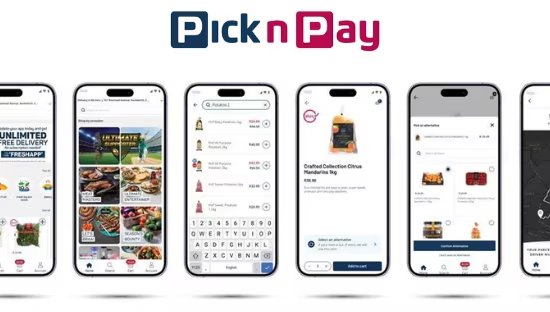
eSIM Breakups: The Real Reasons Users Say ‘I’m Out’
Let’s talk about something no one really wants to admit: switching eSIM providers is a bit like dating. You try one, hope for the best, and when things get messy—or expensive—you’re out. No hard feelings, but you’re not sticking around just because they offered you a free gigabyte last month.
We recently ran a simple poll asking people:
“What’s your main reason for switching eSIM providers?”
Here’s how the responses broke down:
- Promotional offers – 8.70%
- Better coverage – 13.04%
- Better pricing – 39.13%
- Poor experience with the previous one – 39.13%
And that’s the story right there. Nearly 80% of people switch either because their last provider was a letdown, or because someone else is cheaper (796 people voted).
Let’s break that down and see what it really means for the eSIM market (and for you if you’re in the game).
1. Poor Experience: The Deal Breaker No One Forgives
Let’s start with the biggest tie at the top: 39.13% of users said they switched eSIM providers because they had a bad experience.
Now that could mean a lot of things:
- The data didn’t work when they landed.
- No customer support when things went sideways.
- Confusing apps, weird activations, or just a vibe that felt… off.
Here’s the truth: people expect eSIMs to be smooth. We’re talking about digital-first travelers here—tech-savvy folks who don’t want to mess around with APNs and QR codes like it’s 2012. If your platform makes them feel like they need an IT degree just to activate their plan, they’re already thinking about switching.
Bad UX, flaky coverage, or vague “unlimited” promises that actually cap out at 1GB—those are all red flags. And travelers? They don’t forget.
One traveler told us:
“I was in Montenegro, the data didn’t activate, and I couldn’t even find a support email. I ended up buying another eSIM on the spot just so I could book a cab.”
That’s how brutal the switch can be. One poor experience, and you’re done. No loyalty points, no second chances.
2. Better Pricing: The Cold, Hard Numbers
Also topping the chart, 39.13% of people said they switched for better pricing.
Makes sense, right? eSIMs are often marketed to frequent travelers, digital nomads, and budget-conscious folks. If you’re offering 1GB for $10 and someone else has 5GB for the same price—and they’ve got decent reviews—why wouldn’t they jump ship?
It’s not always about being the cheapest in the market, though. People aren’t stupid. They’ll pay a little more for reliability. But if the perception is that you’re overcharging for the same or worse service? They’re gone.
And to make it worse, comparison tools and aggregator sites have made it super easy to see who’s giving the most value. If you’re not competitive on price and you don’t have a rock-solid reputation, you’re going to bleed customers.
So yes, price matters. But people don’t necessarily want a “cheap” provider. They want a fair one.
3. Better Coverage: A Surprisingly Small Slice
Only 13.04% of respondents said coverage was their main reason for switching.
This might surprise some providers who focus heavily on their global reach and coverage maps.
But here’s the thing: most major eSIM brands already boast solid coverage in the usual places—Europe, the US, Southeast Asia. Unless you’re heading to rural Mongolia, chances are that coverage isn’t your main pain point.
That said, this 13% does matter. Because when coverage fails, it really fails. Imagine arriving somewhere like Albania or Madagascar and finding your eSIM has zero signal while everyone else is on WhatsApp planning the trip. You’ll feel left out and annoyed—and likely never use that brand again.
So while it’s not a daily dealbreaker, coverage gaps can still wreck customer trust fast.
4. Promotions: The Least Effective Hook
Now for the bottom of the barrel: just 8.70% said they switched because of promotional offers.
This is interesting, especially considering how much energy some providers put into giveaways, first-time user discounts, and “limited-time offers.”
Sure, promos can get attention. They might even win that first click or download. But they don’t build loyalty, and they rarely convince people to switch again. The numbers are clear: people won’t jump providers just for a €2 discount if they’re happy with the one they’re on.
In fact, some users said they’d avoid providers who seem too promotional. Why? Because it makes them feel like there’s a catch.
One user put it like this:
“If it’s too cheap, I start wondering what I’m giving up. Will I get 2G speeds in Paris? Will it stop working after 1 day?”
So unless you’re running an insane deal with zero strings attached, most people are simply not biting. Promos get you curiosity, not commitment.
So, what should eSIM providers learn from this?
If you’re in the eSIM space—or thinking about launching your own product—this poll offers some pretty clear signals:
✅ Get the basics right: Your app should work. Your data should activate when people land. Customer support should be easy to find. These aren’t “extras”—they’re the minimum.
✅ Be transparent: People appreciate fair pricing and hate vague promises. Don’t over-promise on “unlimited” data or list countries where your signal barely exists.
✅ Focus on long-term value, not short-term promos: Offers are fine, but only if they’re backed by real quality. Don’t let promotions be your main selling point.
✅ Fix what’s broken: Bad experiences are the top reason people leave. A single support ticket that goes unanswered could mean 10 lost customers (thanks to reviews, Reddit threads, and travel groups).
Here is a new one, this week’s poll:
The Bottom Line
Switching eSIM providers isn’t done lightly—most users want stability and ease when they travel. But when something goes wrong or feels unfair, they don’t hesitate to leave.
And despite what you might think, it’s not the flashiest brand or the cheapest plan that wins. It’s the one that actually delivers what it promises—clearly, reliably, and without drama.
So if you’re building in this space (or just shopping for your next trip), keep this in mind: users are telling us what matters. It’s not hype. It’s not discounts. It’s trust.
And trust is earned—not promoted.












